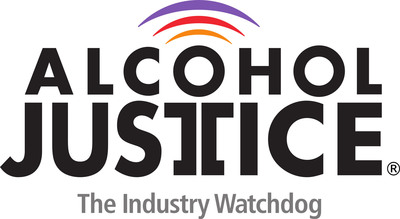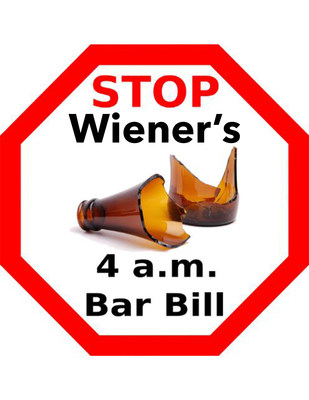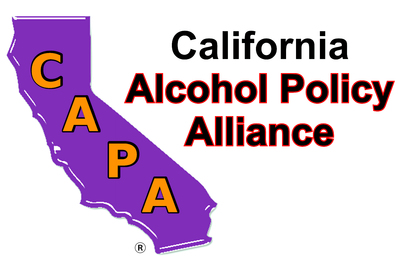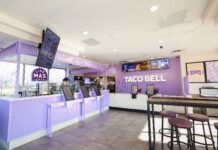State Legislators speak out against the latest attempt to impose a toxic alcohol policy benefiting select business owners at the expense of public health and safety.
SAN FRANCISCO, June 21, 2022 /PRNewswire-HISPANIC PR WIRE/ — Alcohol Justice is welcoming the participation of the California Alcohol Policy Alliance (CAPA) and state legislators in opposing passage of a bill that is the fifth attempt since 2013 to extend alcohol hours of service in California. Senator Scott Wiener (D-San Francisco) and Assemblymember Matt Haney (D-San Francisco) “gutted and amended” SB 930, a bill originally relating to housing which passed the Senate in May. SB 930 is now a bill in the Assembly that has nothing to do with housing but would allow 7 cities in California to extend alcohol sales in bars and restaurants to 4 a.m.

“All previous attempts to extend last call for alcohol sales have failed in California for good reason,” said Sandy Logan, Program Director at Pueblo y Salud and CAPA spokesperson. “If passed they would disrupt the protections of uniform closing time in California to benefit a select number of late night businesses in a handful of cities, while spreading considerable harm to “Splash Zone” surrounding communities throughout the state. SB 930 is no different, it is public policy at its worst.”
Last call times—what the scientific literature calls “trading hours”—are a backbone of maintaining alcohol as a safe and legal product. The Community Guide, a CDC-led handbook of public health best practices compiled in part by experts at the University of California, Los Angeles, identifies maintaining existing last call times as one of the 10 key policies for reducing the harms from reckless drinking and from alcohol-related motor vehicle deaths.
“Supporting this measure is a vote for death,” stated California State Assemblymember Tom Lackey (R-Palmdale). “We must defeat this bill, again.”
Beyond the CDC-identified harms (11,000 California deaths per year) and costs ($35 billion annually) from reckless alcohol consumption, CAPA has numerous other concerns including:
- Extended last call times only benefit bars by allowing them to sell more alcohol. The scientific consensus holds that late last call times are directly associated with more injuries, more violence, more neighborhood disruption, and more motor vehicle fatalities. Increased alcohol consumption generally is also associated with more suicide, homicide, domestic violence, sexually transmitted diseases, and poisonings.
- As California becomes more dispersed and the inner cities more expensive, low-income communities—including many communities of color—are pushed to suburbs and exurbs, and asked to make long commutes. Partiers leaving at 4 a.m. are now driving home at the same time, on the same roads, as many members of our communities are driving children to school and headed to work.
- The majority of the cities targeted are ones with large LGBTQ+ populations. Although bars and nightclubs have a long, storied history as gathering places for these communities, this has long been a double-edged sword. Various groups within the LGBTQ+ spectrum are more susceptible to a range of alcohol-related or alcohol-potentiated harms, including suicide and depression, assault and crime victimization, alcohol use disorder, and dual diagnosis trauma/substance use disorders. Negative outcomes are even more likely among black, indigenous, and people of color who identify as LGBTQ+. By leaning heavily into expanding alcohol sales in cities which are refuges to these groups, SB 930 risks disproportionately disrupting or ending the lives of the people who would ostensibly “enjoy” the extended hours.
“Allowing bars to remain open until 4 a.m. increases the potential for more drunk drivers on our roads and places more lives at risk,” said Senator Patricia Bates (R-Laguna Niguel), who opposed previous iterations of SB 930. “The latest numbers from the National Highway Traffic Safety Administration (NHTSA) show California experienced some of the highest alcohol-impaired-driving fatalities in 2020. At a time when the state should be seeking ways to reduce drunk driving, this bill makes little sense.”
Alcohol Justice and CAPA are urging concerned Californians to oppose SB 930 by Texting JUSTICE to 313131. Taking action in this way will send a message to members of the Assembly Governmental Organization Committee (GO) which is scheduled to debate the bill on Wednesday, (6/22) at 1:30 p.m.
“There is an outrageous and unacceptable amount of annual alcohol-related harm in California,” stated Cruz Avila, Executive Director at Alcohol Justice. “It is way past time that our elected leaders focus on reducing those numbers instead of increasing the profits of alcohol-related businesses. Saying NO to SB 390 would be a great first step.”
Facts:
- SB 930 is a poorly conceived and inadequately funded ABC “pilot project” to extend last call to 4 a.m. in seven cities: San Francisco, Oakland, Fresno, West Hollywood, Palm Springs, Coachella, and Cathedral City.
- SB 930 disregards 40 years of peer-reviewed, public health research on the dangers of extending last call.
- SB 930 will strip away uniform protections of the existing 2 a.m. last call, and spread additional alcohol overconsumption, loss of life, injury, and nuisance across the state.
- According to California Office of Traffic Safety (OTS), fatal DUI is a chronic, worsening problem for California.
- The U.S. Community Preventive Services Task Force found that every 2-hour increase in last-call times results in greater vehicle crash injuries and E.R. admissions.
- There is no such thing as “local control” in alcohol policy. The harm from one city’s decision to change last-call times “splashes” over every surrounding community.
- According to the Center for Disease Control (CDC), California already suffers over 11,000 alcohol-related deaths annually, $35 billion in total costs, and $14.5 billion in state costs.
- SB 930 subsidizes and rewards late-night alcohol-sellers at tax-payer expense.
READ MORE:
- The Late Night Threat: Science, Harms, and Costs of Extending Bar Service Hours
- The High Cost of the 4 A.M. Bar Bill: A Cost-Benefit Analysis of Extended Alcohol Trading Hours in Los Angeles
TAKE ACTION to STOP SB 930: https://bit.ly/39xULWc or Text JUSTICE to 313131
CONTACT:
Michael Scippa 415 548-0492
Mayra Jimenez 323 683-4687


Logo – https://mma.prnewswire.com/media/147418/alcohol_justice_logo.jpg
Photo – https://mma.prnewswire.com/media/1843715/California_Alcohol_Policy_Alliance_2.jpg
Logo – https://mma.prnewswire.com/media/469269/California_Alcohol_Policy_Alliance_Logo.jpg
SOURCE Alcohol Justice; California Alcohol Policy Alliance







